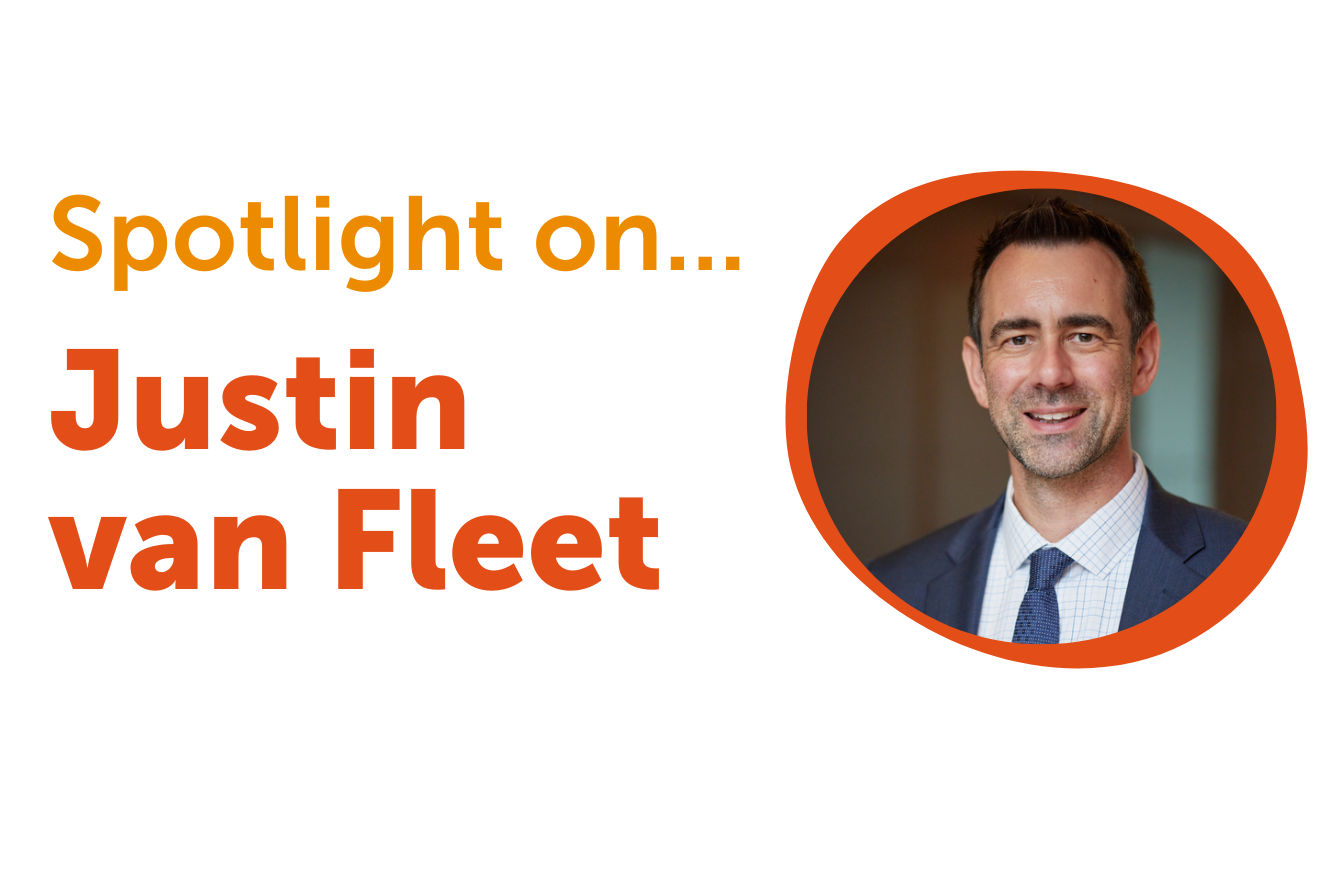“Education is the key to unlock all of our social and economic goals”

To kick off 2023, we talk to Justin van Fleet, President of Theirworld and Executive Director of the Global Business Coalition for Education.
Last year Theirworld celebrated its 20th anniversary - what was your highlight of 2022?
When I look back on our 20th anniversary year, our team came behind our vision and mission and generated results, culminating in so many impactful moments.
Our Global Youth Ambassador programme reached record enrolment and participation – with over 2,000 participants in more than 120 countries, the #LetMeLearn campaign reached over two billion social media accounts during the United Nations General Assembly, our rapid response in Ukraine with the Global Business Coalition for Education (GBC-Education) impacted the lives of four million teachers and students, and GBC-Education launched a landmark blueprint on ESG (environmental, social and governance) investing and education.
We also hit two major campaign milestones. First, a new finance facility for education was established, which we have been backing since 2016, generating billions of dollars in new funding for children and youth.
And after years of campaigning for 10% of education budgets to go to the early years, countries agreed to the target at the UNESCO World Conference on Early Childhood Care and Education. It’s hard to select just one!
Looking ahead, what are your main goals for Theirworld this year?
We are embarking on a new five-year strategy aimed at doubling down on a few key areas to achieve our mission of ensuring every child has the best start in life, a safe place to learn and skills for the future.
- First, we are placing a massive investment in our Global Youth Ambassadors and doubling the size of our investment in local education innovators and entrepreneurs to help scale local, community-based solutions.
- Second, we know early childhood development lacks the political will and financial support it needs, so we will launch a major global campaign with funding mobilisation targets and will aim for leaders to call a global summit on the early years.
- Third, we’re looking at how education can work with other sectors and advance broader societal goals, so we’ll be building bridges and alliances with the climate, gender equality, health and nutrition, inclusion, peace and security sectors.
We have a lot more planned but these are a few highlights.
Why is it so important to keep education at the top of agendas this year?
To me it’s simple. Education is the key to unlock all of our social and economic goals. We cannot achieve a healthier population, cleaner planet, peace, thrivable wages or broader equity if we fail to ensure everyone has the most basic skills and competencies to unleash their potential.
What keeps you motivated when the challenges seem too big overcome?
I have been working on education for many years – and when I meet young people passionate about changing the future and see the progress can be made if you stay the course, it is really motivating and fulfilling.
There were so many times when I wanted to give up when we were campaigning for a fund for education in emergencies or the finance facility. But when the need is so urgent and young people are leading the way, informed by strong evidence, it’s impossible to give up until we reach our goal of ending the global education crisis.
What is the greatest lesson you have learned outside the classroom?
In school, I always assumed a straight line was the fastest way to a solution. But in campaigning, not everything is a straight line – nor is it always intuitive or easy!
By talking to people, listening to new ideas and experiences, and adapting to changing political and social environments, progress can be made.
But it is a path that is full of twists, turns, steps backward, learning, regrouping and trying again. I think these lessons in campaigning are ones that can only be learned through experience.
If you could send one message to world leaders, what would it be?
No matter what issue you care about, if you do not invest in education – starting with the early years – it will be impossible to achieve systemic and sustainable results.
So whether it is job creation, economic growth, innovation, climate, equity, food security, peace or health, start by looking at what you are doing in your education system.
It will be the key to unlocking a solution to your issue and the potential of the next generation.